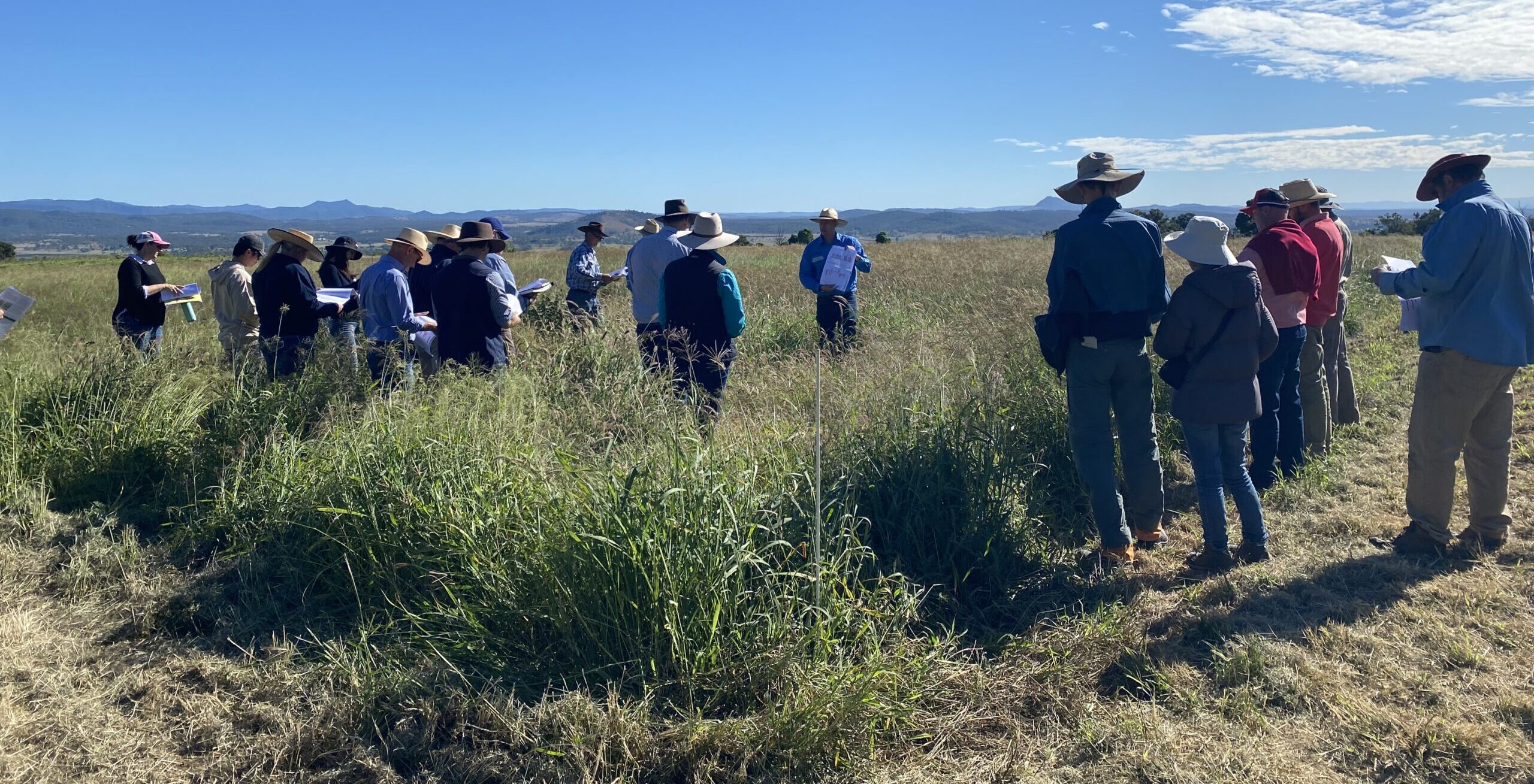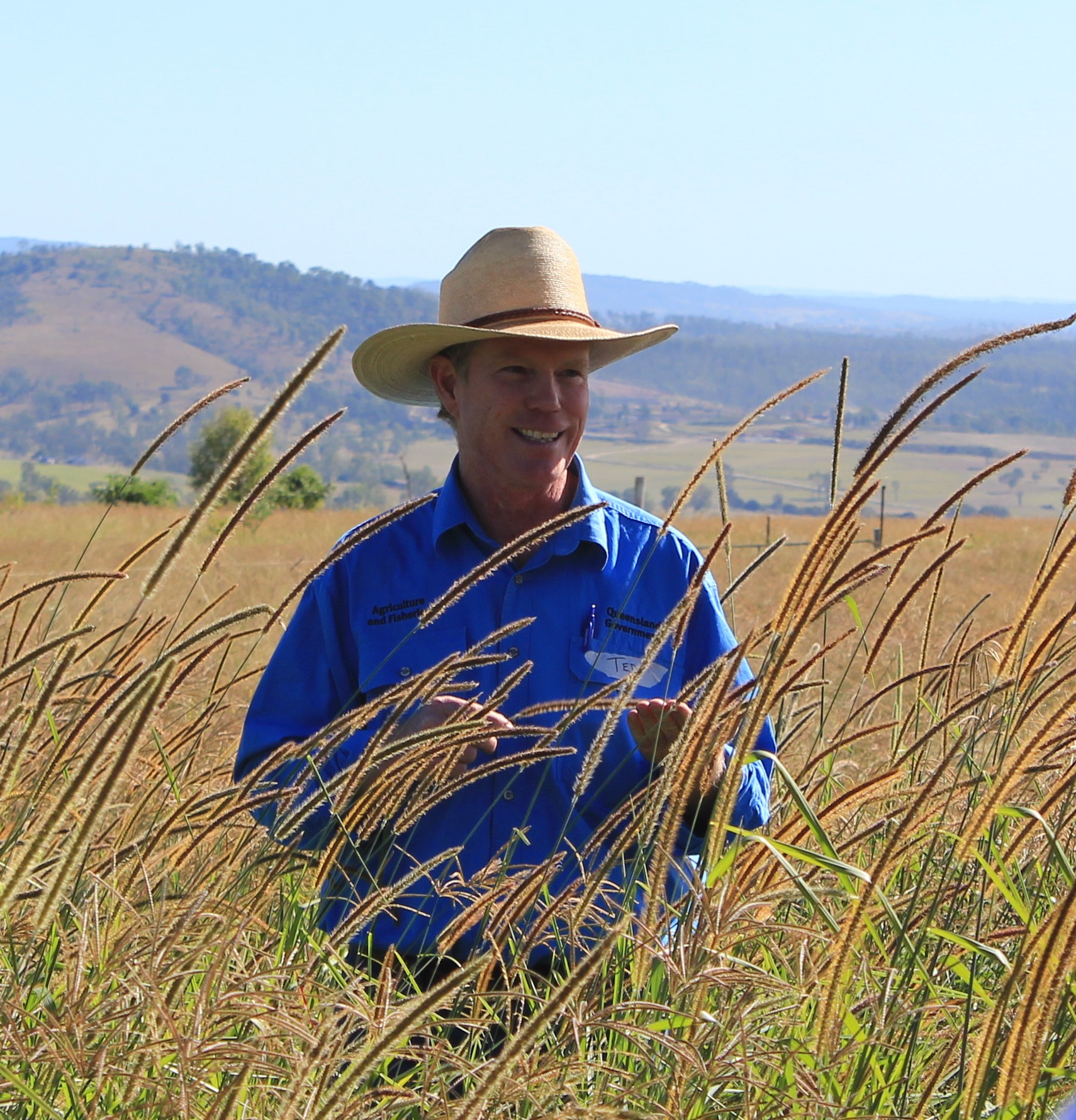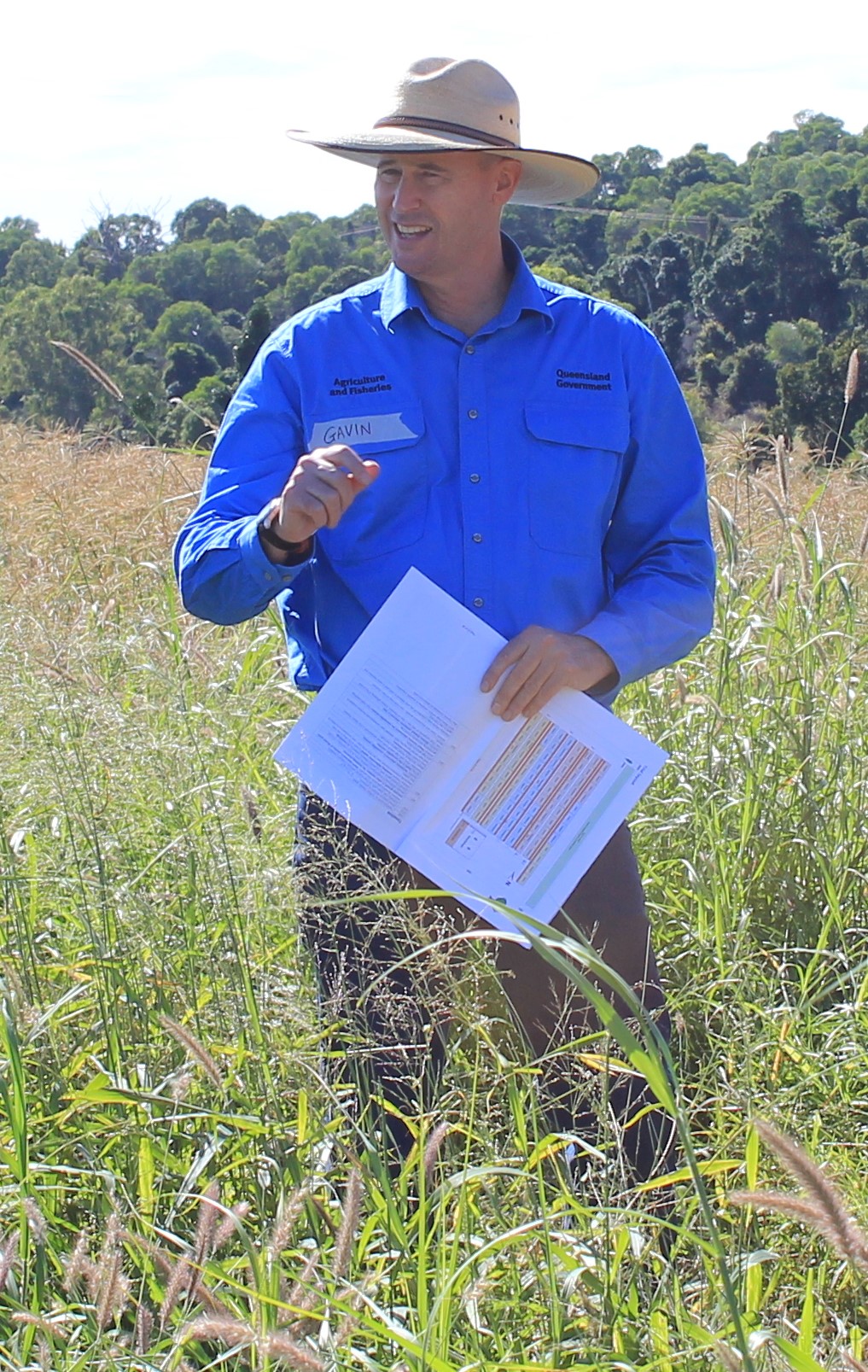Boonah field day shares research into grasses’ tolerance to pasture dieback
The interim results of a 4-year trial assessing the tolerance of 30 grass varieties to pasture dieback were recently showcased at a field day near Boonah.

Department of Agriculture and Fisheries principal pasture agronomist Gavin Peck said pasture dieback – a condition that affected summer growing sown pastures — had been observed in the Fassifern Valley since 2017. Pasture dieback had now been confirmed across much of southern Queensland and in some areas of northern New South Wales, he said.
“Locally, pasture dieback has been widely reported in Rhodes grass varieties, panic grass varieties, kikuyu, paspalum, digit grass and creeping bluegrass,” Mr Peck said.
“We have trialled the most common sown pasture species in an open field situation that is periodically grazed by cattle. This is the only trial of its kind in Queensland where mealybugs have been directly applied to plots and has now been running for 4 growing seasons.
“Our results show that some varieties are highly susceptible to pasture mealybug, while others appear more tolerant. Some varieties support a more rapid increase in mealybug population while others appear to suppress the population.
“A number of pasture varieties can withstand a heavy mealybug load, while other varieties have high levels of damage at low mealybug density. Some varieties have died out or grown so poorly that their plots have been colonised by more tolerant varieties.”
Biloela and Tarwinnabar Buffel varieties, Signal, Narok Setaria and Mekong Briz antha have shown a higher tolerance to pasture dieback, while Bissett creeping bluegrass, Kikuyu and sabi grass are highly susceptible.

“The results of this trial are invaluable for producers and advisors involved in planting a new area of improved pasture or renovating an existing pasture that has been badly affected by dieback and are looking for a more resistant variety.”
Feedback from producers on the day suggested they will change their future pasture species mix based on the trial results and what they have seen at the trial site.
It is hoped the results of this trial will give producers who have been affected by pasture dieback better pasture management options for the future.
“All is not lost. There are sown pasture species with a high tolerance to dieback and, when coupled with legumes, they can maintain a productive and persistent pasture.”

Pasture dieback research continues through the Queensland Pasture Resilience Program, a partnership between DAF, Meat & Livestock Australia and the Australian Government through the MLA Donor Company.
More information about pasture dieback (including an identification guide, management options and webinar) is available here.